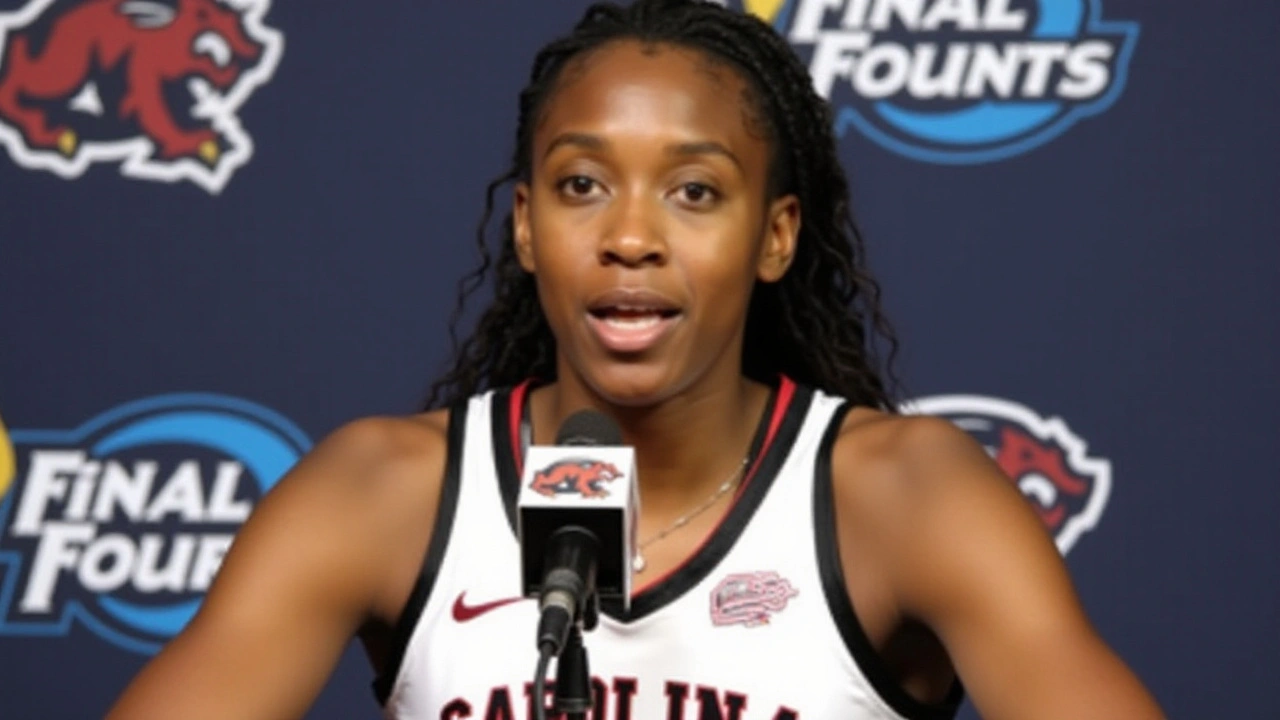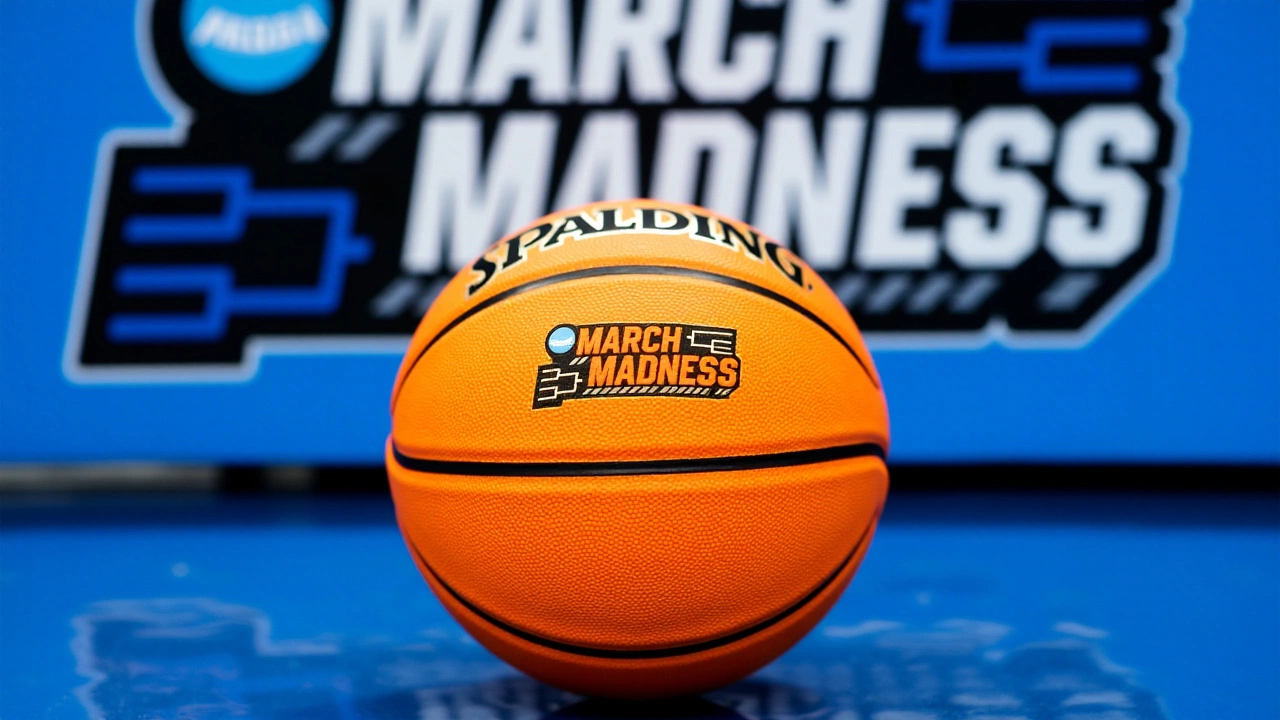South Carolina Basketball's Ashlyn Watkins Accused of Assault and Kidnapping
In a surprising and concerning turn of events, Ashlyn Watkins, one of the standout athletes from the South Carolina women's basketball team, has found herself enmeshed in serious legal trouble. The bright light of the team, known for her impressive contributions on the court, was arrested following a distressful incident on the university campus involving charges of assault and kidnapping. According to the report by the University of South Carolina Police Force, Watkins allegedly committed acts of aggression against an individual known to her, resulting in severe allegations that have shocked the community.
The police report details disturbing actions attributed to Watkins. It’s alleged that Watkins physically assaulted the victim by aggressively grabbing her face and pulling her arms. The claims further state that she pushed the victim and even lifted her against her will, limiting her movement and preventing her from leaving the scene. This intense situation reportedly resulted in the victim sustaining injuries, though fortunately, they were not life-threatening.
Impact On the Community and the Team
The South Carolina community, including its spirited student body and dedicated sports fans, has been left reeling by these allegations. Watkins' contribution to the team's national championship success last season made her a celebrated figure. Now, the community grapples with the dichotomy of her on-court heroics contrasting sharply with the current accusations. It's a topic that’s expected to dominate conversations and news cycles in the weeks leading up to her court appearance.
The university's athletic program has acknowledged the gravity of the situation. While the primary focus currently is collecting all pertinent information, there’s palpable anxiety over the potential fallout. Teammates and coaching staff, who looked to Watkins for her athletic prowess, now face a period of uncertainty and distraction. For a unit that performed cohesively last season, these developments could potentially cast a long shadow over their preparation for the upcoming season.
Legal Proceedings and Defense Argument
Watkins is scheduled to appear in court on October 25, a date that will likely see considerable media attention. She has been granted a $30,000 personal recognizance bond, allowing her to remain out of jail, albeit under specific conditions. She must maintain a distance of 1,000 feet from the victim's home, workplace, school, and place of worship. These restrictions illustrate the seriousness with which the court is treating the incident.
Todd Rutherford, Watkins' attorney, has asked the public for patience as the defense prepares its case. Rutherford hints that the incident could boil down to a misunderstanding, urging people not to rush to judgement. His statement aims to cast doubt on the initial allegations, suggesting that there’s more complexity to the situation than the charges might initially imply. Whether this defense approach will resonate in court remains to be seen.
Public Reactions and Long-Term Impact
Public reactions have been a mix of shock, disappointment, and a call for due process. Social media platforms and public forums have lit up with discussions about the case, with opinions sharply divided. Some argue for the presumption of innocence until proven guilty, pointing to Watkins’ clean prior record and her significant role in the university’s athletic accomplishments. Others focus on the severity of the charges, emphasizing that no individual, regardless of their status, is above the law.
In the long term, this incident could have significant repercussions for Watkins’ career, both collegiate and professional. If found guilty, the implications are dire – potential jail time and the resultant derailment of an otherwise promising basketball career. Beyond the legal ramifications, Watkins' reputation could suffer irreparably, affecting future opportunities in and out of sports.
| Statistic | 2019-2020 Season | 2020-2021 Season |
|---|---|---|
| Points Per Game | 7.8 | 9.2 |
| Rebounds Per Game | 4.3 | 5.4 |
| Assists Per Game | 2.1 | 3.0 |

Focus on Educating and Supporting Athletes
This incident also raises broader questions regarding the pressures faced by student-athletes and the support systems in place to help them manage stress and conflict. Universities, including South Carolina, invest heavily in their athletic programs, but incidents like this bring to the fore the importance of comprehensive support, including mental health resources and conflict resolution training. Ensuring athletes have access to these resources can help in preventing situations from escalating to this level of severity.
Of course, the story doesn’t end once the court makes its ruling. Whether acquitted or found guilty, Watkins and the university will have to navigate the process of rebuilding trust and addressing the damage caused. For Watkins, it’s a life-defining moment – one that will undoubtedly shape her future choices and actions.
Case Continues to Unfold
As we watch this story unfold, it serves as a stark reminder of the unpredictable nature of life and the critical importance of how we respond to its challenges. For Ashlyn Watkins, the weeks ahead will be crucial in determining both her legal standing and her place within the community she has represented on the basketball court. The legal proceedings will be meticulously followed, and the outcomes will have long-lasting impacts on everyone involved.
In the meantime, the South Carolina women's basketball team will have to prepare for the possibility of moving forward without one of their key players. The focus shifts back to the sport, to the games ahead, and the challenges that await both on and off the court.


Chris Ward
Honestly, I think the whole media frenzy around Ashlyn is a bit overblown. Sure, the allegations are serious, but turning her into a villain before the court even hears her side feels prematue. The team’s success last season doesn’t excuse any wrongdoing, yet we should remember that every story has at least two angles. Also, the university’s quick statements could be more about protecting its brand than seeking truth. In any case, let’s wait for the facts instead of feeding the rumor mill.